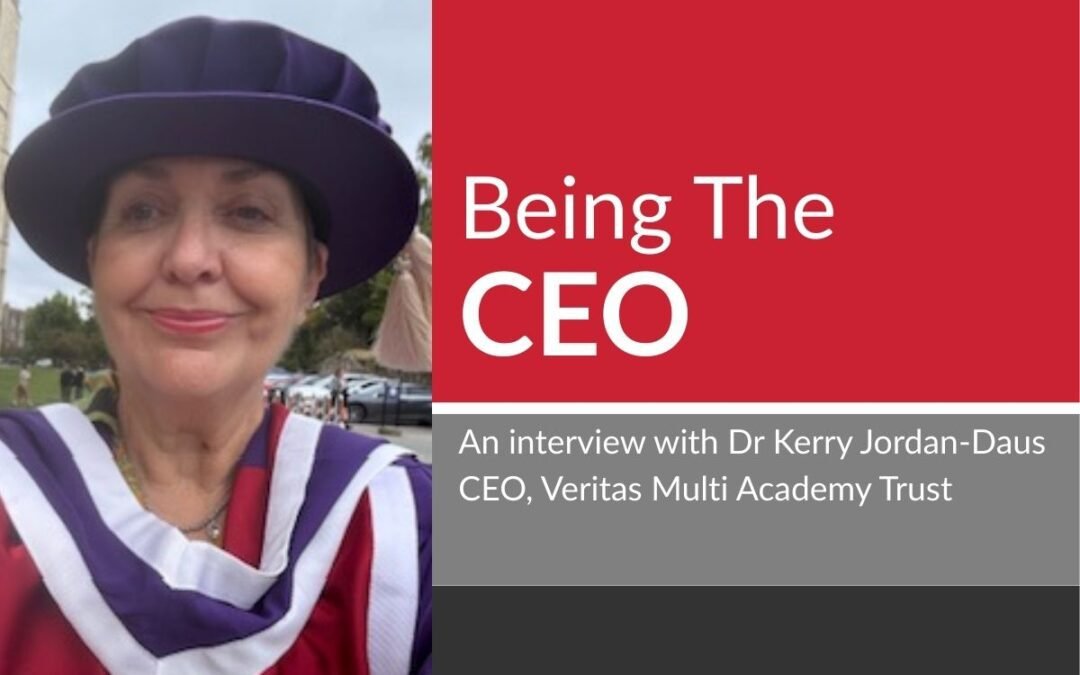In the information age, it is all too easy for us to become overwhelmed by the noise and the discourse around us. We also live in a society that convinces us that success is always around the corner, but rarely defines success as being in a healthy ‘flow’, where we are giving and doing our best, with the tools and resources we have – in the moment.
For busy executive leaders, avoiding becoming overwhelmed is a constant challenge. Not only do CEOs need to stay ahead of current events and societal dynamics in order to gather the necessary contextual wisdom for leadership, they are also increasingly expected to engage in online platforms such as social media. This is all in addition to the day job which, with the event of COVID19 and, before that, a decade of austerity and moving ‘success’ targets, has only served to ramp up the intensity and uncertainty for today’s CEOs. The pressure is – to use a popular term – unprecedented.
Yet, to be an effective leader it is important that we find the time to stop, process, reflect and think ahead in an otherwise busy world. Without this time, we can so easily become hamsters on a wheel driven by, and reactive to, the multitude of everyday events and expectations around us. We can soon feel out of control and the job begins to feel too hard. Indeed, research tells us that generally CEOs struggle to carve out this time to stop and reflect. That is a shame, because finding it can be a game changer.
This is why coaching is so important. It affords us with a valuable opportunity to take stock and to clarify our priorities and agendas, as well as to listen to ourselves and to reflect on our own needs and wellbeing as executive leaders. The CEOs that work with Forum Strategy tend to be ones that really prioritise their own professional development already. Even still, coaching itself can often fall down CEOs’ priority lists because it is seen by many as ‘a nice thing to do’, something that is rarely urgent in a world of urgent things. The majority of CEOs, according to recent research by Stanford Business School, do not have a dedicated coach.
Yet the investment in a few hours reflection time every few weeks can help busy leaders to focus and regain a sense of control, both of their organisational agenda and their own priorities and actions as leaders. Any coach to CEOs should have a deep appreciation the CEO role, but shouldn’t pretend to understand the individual CEO’s world or come to it armed with off the shelf solutions – which can sometimes happen if the coach comes from the same sector.
As with all coaching, the power of coaching CEOs is not found in the coach’s advice or their truths (although there is a place for this on occasion)> Rather, it is found in the coach’s ability to create a level of stillness, of self-awareness in the coachee, that allows them to see their context with a new perspective and a renewed sense of possibility. It is important that the coach has a deep appreciation of what the CEO role entails – the remit and limitations – in order to ask the right questions and encourage appropriate reflection.
In coaching CEOs, I am presented with many common problems, and, in recent weeks, some new ones too. Here is a non-exhaustive list of the issues that can often come up:
- Relationships with the board
- Dealing with politicians and civil servants, or issues that are political in nature
- Prioritising their agenda and narrowing down the number of goals they have to a more manageable and focused level
- Approaching the issue of underperformance on their team
- Retaining the top talent upon which the CEO depends
- Generating a culture of disciplined innovation
- Managing the workload and intensity associated with the role; the need to prioritise and ‘let go’
- Identifying key strategic partnerships with others beyond the organisation
- Building capacity
- Organisational restructuring and identifying gaps within the organisation
It often helps to provide CEOs with a carefully crafted self-evaluation form – such as the one we used based on the book ‘Being The CEO’ – which enables them to reflect before the initial session, sharing some thoughts with the coach in advance of the meeting. In addition, a CEO may not have a specific issue to focus on, but instead, may simply need space to begin to consider how they are feeling and to articulate the challenges and key demands they face. Just getting to the heart of this can be useful in itself.
CEOs are not superhuman, they do not possess the ability to take on more and more without taking stock of their priorities and then giving the key issues they face the time and careful thought they deserve. Yet the pace of the CEO’s every day life works against this, and we see more CEOs working so frantically that it just feels impossible to stop – it’s a vicious circle. This is where the CEO and the organisation become at serious risk. Coaching provides an answer.
So, to end with a few questions:
Have you experienced coaching within the last six months? Are you protecting time for coaching and reflection, ensuring it doesn’t simply become a ‘nice to do’? Has your coach enabled you to experience the stillness and the self-reflection necessary to gain a sense of perspective and control in your work (and personally)? Does your coach understand the nature of the CEO role and do the questions and thinking they elicit reflect the specific nature of the role?
We pay CEOs well. Yet if we don’t invest in their ongoing development and support, we put at risk the larger investment in salary (very often public money), as well as the individual’s health and wellbeing.
Some key learning points
- Time for reflection (and specifically for effective coaching), is time invested not spent
- The demands on CEOs are unprecedented and external forces can quickly make a CEO reactive and give a sense of loss of control;
- Coaching should provide the CEO with some reflection time before the meeting, as well as within it. Sharing a short but evidence-based self assessment form beforehand can help make the meeting itself more productive;
- Coaching should be delivered in an environment of stillness, with as few distractions as possible. The coach should have a strong appreciation of the CEO role and ask questions that reflect the level at and parameters within which the leader is operating.
- The CEO may need more time to reflect on all the issues they face, and how they prioritise them, before diving into the issues themselves. Some time just to talk and ‘let things out’ is useful for both coach and coachee
- CEOs should be encouraged to reflect on their own health and wellbeing, and any risks posed to these. The questions ‘how are you?’ and ‘how are you feeling?’ are two of the most important openers. Very few CEOs feel able to answer this question honestly in their day to day working environment.
Of course, it goes without saying the content of a coaching session – particularly for those running large and high profile organisations – should be treated as highly sensitive and confidential. Reiterating this at the beginning of each session is helpful for building trust and providing the right basis on which a CEO can make the very most of the coaching process.
Michael Pain is the founder of Forum Strategy, author of ‘Being The CEO’, executive coach, and leads the Being The CEO programme. To apply for coaching support in 2025, please express your interest by emailing admin@forumstrategy.org
Testimonials on Michael’s coaching:
“Working with Michael has transformed the way I think and feel about being coached, helping me feel so much more in control of my work as both CEO and educationalist. The sessions have given me confidence in knowing I can be successful and have provided clarity of strategic thinking in so many ways. His ‘homework tasks’ have ensured there is always something practical to take away, as well as achieve to ensure the sessions maintain positive outcomes for the Trust. On a personal level, I am extremely grateful to Michael for his empathy, kindness and supportive challenge.” Rob Carpenter, CEO
“Michael has been invaluable in my drive to develop and expand the trust. He is part strategist, part thought provoker, and part motivator. He has a way of repackaging your own, sometimes confused thoughts in a way that adds meaningful direction. He has a knack for knowing when to challenge, when to support, when to encourage to bring out a clarity of purpose and desire that is often hard to pinpoint on your own.” Sarah Malam, CEO
“the bespoke, one-to-one coaching, provided by Michael as part of the (Being The CEO) course to support individual learning, marked this provision out as a real driver of personal development and effectiveness.” Mark Moorhouse, CEO
“Michael has a warmth and ease that facilitates the most effective coaching conversations. Our senior team each came away from their interactions remarking that their exchange with him had provided a solid opportunity for honest and deep reflection. His clear thinking and extensive knowledge of the sector meant that he was able to take the information we had all given him and synthesise this, producing a report for trustees that will provide the backbone to our strategic development plan. Michael will now be a trusted, honest, and effective challenge partner for us as we continue to develop over the next five years..” Clare Maclean, CEO
“‘Working with Michael has allowed me the opportunity to diary in some much needed head space (particularly at the moment) to focus on my professional journey with him and to consequently develop a much deeper awareness of how that is inextricably woven to the development and context of the Trust. The ability to work with Michael and learn from his national expertise, experience and the perspective of other leaders both the education sector, charities, public sector and commerce is invaluable in this multi-dimensional role….t he executive team and I are incredibly excited to move this work onto the next stage and spend time being mentored, as a group, by Michael and ultimately invest in becoming a High Performing team for an on behalf of our children and staff.’ Katrina Morley, CEO


